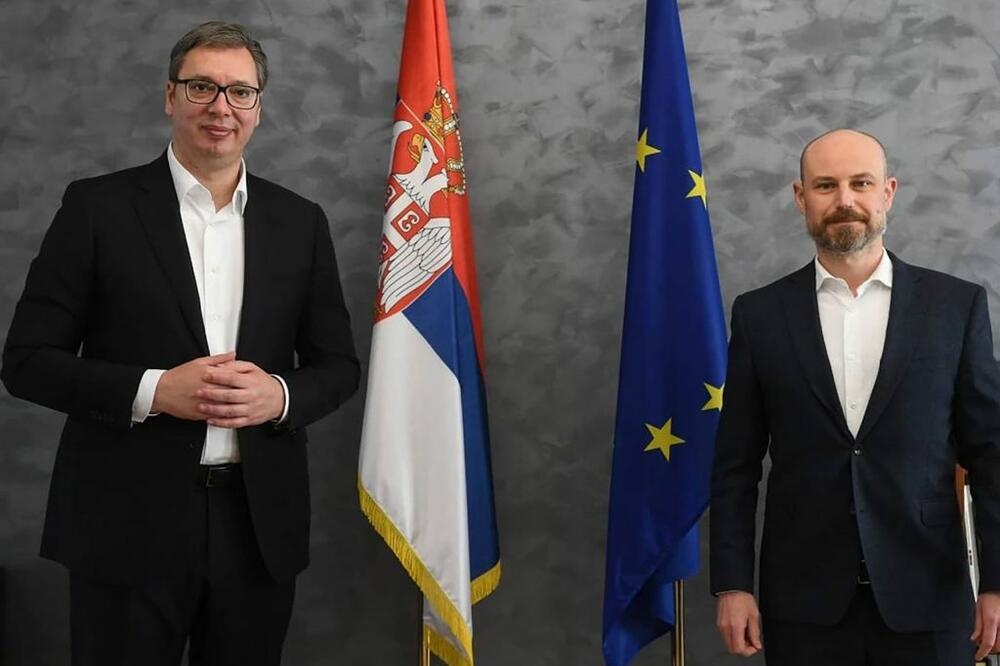In the polished world of international diplomacy, situations like those of Vladimir Bilčik, the European Parliament's rapporteur for Serbia, are very rare. Stefan Šenah, head of the delegation of the Parliamentary Assembly of the Council of Europe, which observed the elections in Serbia, commented on Bilčik's assessment that the elections in Serbia "went smoothly", saying that "partnership and democracy do not lie on nice words but on the truth".
Translated, Šenah clearly said that Bilčik is not telling the truth, that we should not use some other adequate but inappropriate expression for public communication.
The reason for this assessment was Bilčik's assessment of the regularity of elections in Serbia.
"What we noticed is that the elections were well conducted, well managed. There are some irregularities when it comes to the reports we received from the places we visited about bringing in additional voters, but it is not a question of a large number of voters. Also, about the potential buying of votes, especially in and around polling stations. But again, these were not major incidents, but those we observed on a smaller scale. So, overall, I think the election went smoothly. That's why I want to congratulate the citizens of Serbia for voting in greater numbers than last year," Bilčik told Insider.
And, Senach is not an unknown name in European diplomacy. He has been a member of the Austrian delegation to the Parliamentary Assembly of the Council of Europe since 2011, a member of the Bundestag on behalf of the Social Democratic Party of Austria. He performed the duties of the Council of Europe rapporteur on "dirty money", "youth in custody", "illegal trade in cultural heritage" and participated in the election observation missions of the Council of Europe and the OSCE in Russia, Armenia, Georgia, Azerbaijan, Morocco, Bosnia, Serbia, Turkey, Macedonia, Ukraine, Georgia, Moldova, Kyrgyzstan.
Senah said that the truth in Serbia is somewhat shocking, that the elections were not fair, that the votes were manipulated and that all this is a problem for a country that wants to follow a democratic path. He added that during the counting of votes, he saw that there were ballots that were made in a photocopier and that had a stamp on them.
This Austrian politician was not the only one in very critical evaluations of the elections in Serbia.
"I observed many elections, but the ones held in Serbia were far from any European standards," Socialist and Democrat MP Andreas Šider, who was also a member of the European Parliament mission that observed the elections in Serbia, told N1. He believes that it would be necessary to conduct an international investigation, or at least repeat the elections in Belgrade, but under new conditions.
"We saw phantom ballots again, we heard that 50.000 people were brought to Belgrade, we saw photos on social networks, people took pictures of the ballots, we had testimonies of vote buying," said the MEP.
The representative of the Free Democratic Party of Germany, which forms the ruling coalition, Thomas Hacker, said that the elections in Serbia received a worrisome rating and that it is no wonder that only Viktor Orban, Vladimir Putin and Chinese diplomats congratulated the election winner (SNS and Aleksandar Vučić).
Of course, after such opposing views, the question arises whether Bilčik, Šenach, Šider and Hacker followed the same elections because, obviously, it is not a question of nuances but of huge differences in evaluating the elections in Serbia.
It is also about the motives of Vladimir Bilčik to "smoothly" keep silent about everything that his colleagues observed in the election process in Serbia.
At the same time, we should also remember Bilčko's well-known gaffe from 2022, when he submitted to the EP members a draft resolution on Serbia, from which he also smoothly omitted the affairs of Jovanjica, Krušik, Savamala, "Telekom Srbija", the "Belivuk" case.
In the mentioned draft, Bilčik stated that the European Parliament reiterates its concern about the limited progress in the fight against corruption and organized crime and called on Serbia to intensify efforts to solve these problems more effectively, without specifying which problems it refers to.
Then, thanks to the members of the European Parliament, that maneuver did not go well for him, but Bilčik clearly does not falter and does not give up, as he once tried with all his might until the last moment, often crossing the line of good taste, to convince Montenegro which and what kind of government it should elect. .
"I can't imagine a true pro-European government with any political forces that in recent years and over time have questioned the Euro-Atlantic orientation of Montenegro and even tried to undermine it, or that have openly questioned Montenegro's alignment with EU support Ukraine and Ukraine's defense against Russian aggression, or who have openly cooperated with Putin's Russia in recent years, or who are also trying to publicly revise the facts about the war crimes of the 1990s", said Vlado, as some DPS tribunes beat him.
Let's be clear, such an attitude of Bilčik would be understandable and legitimate if it were not in deep contrast with what was happening at that time in his Slovakia. My colleague Željko Pantelić once explained it in great detail, but let me repeat: Bilčik was not bothered by the mandate Robert Fico, despite the fact that Fico led an openly anti-Ukrainian election campaign promising that he would not give a single shot to Ukraine, nor did the Slovak People's Party (SNS) of Andrej Danka, who was defined by the head of Russian diplomacy, Sergei Lavrov, as "a very dear friend". But that's why Bilčik was indecently aggressive in convincing the Montenegrins that Knežević & Mandić should never be in the government precisely because of that "Russian influence".
Should it be said that Fico became prime minister with the support of the (Slovak) SNS?
To be fair, Vladimir Bilčik is not (only) a problem for Montenegro and Serbia. Much more important than his verbal phantasmagorias is that people like him cause serious damage to all those who sincerely stand for European integration and the implementation of European values, rightly wondering if this is Bilchik's Europe that we should aspire to and emulate.
Bonus video:





